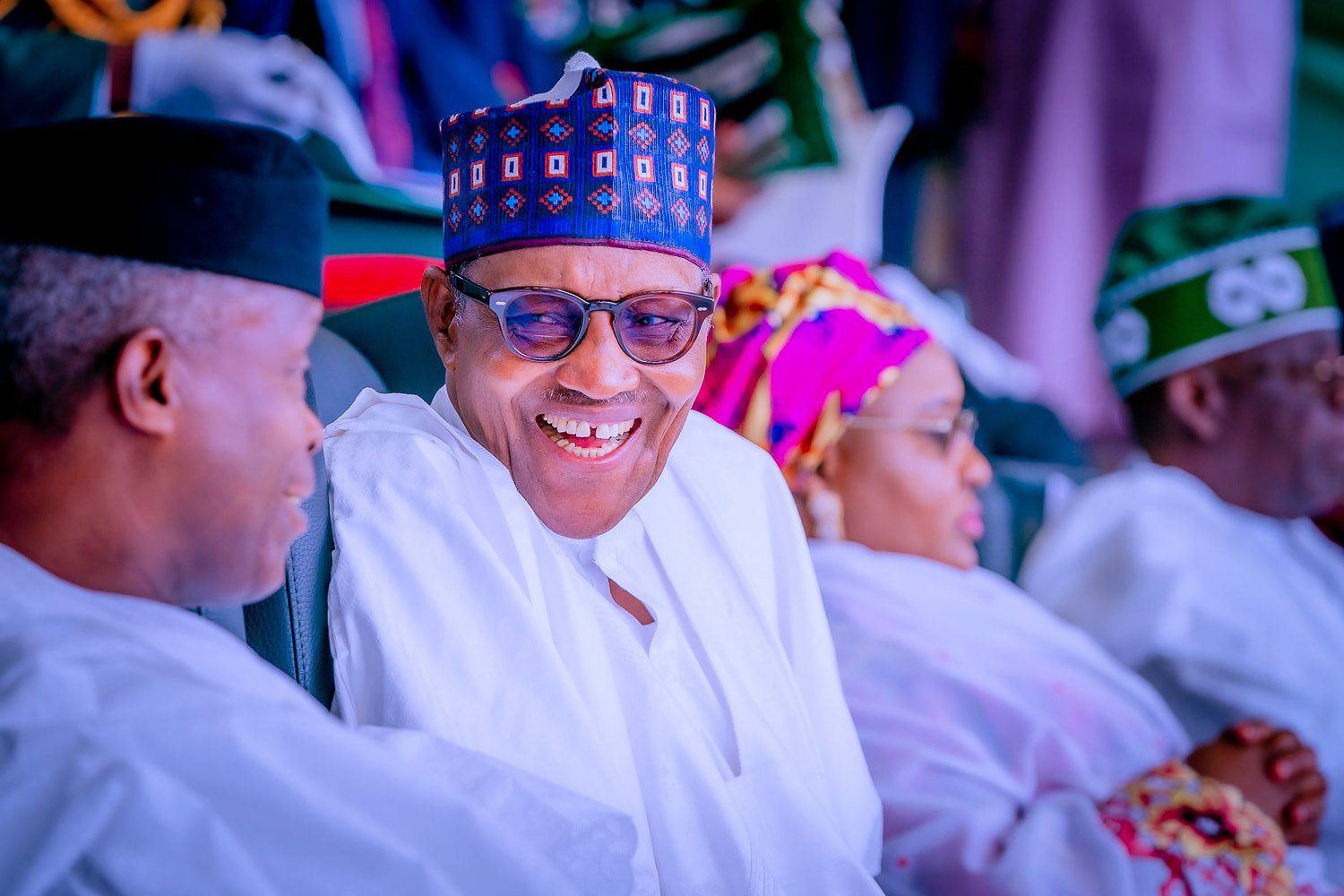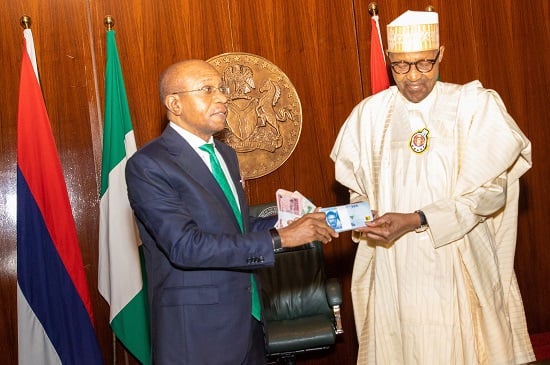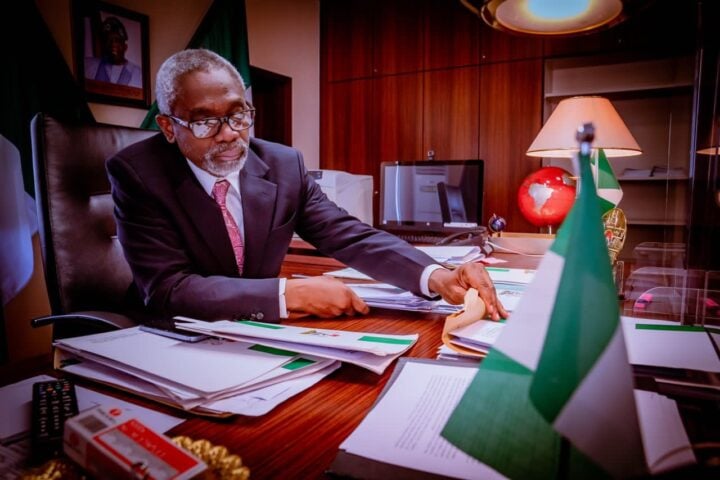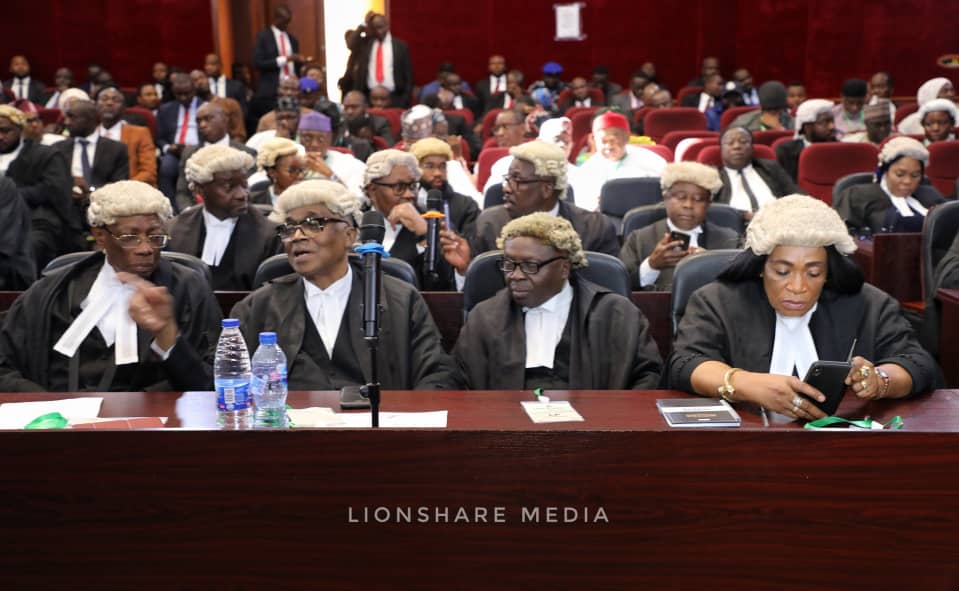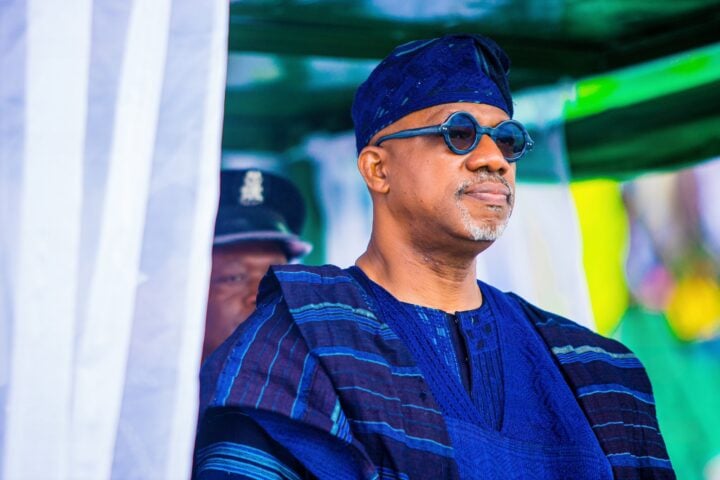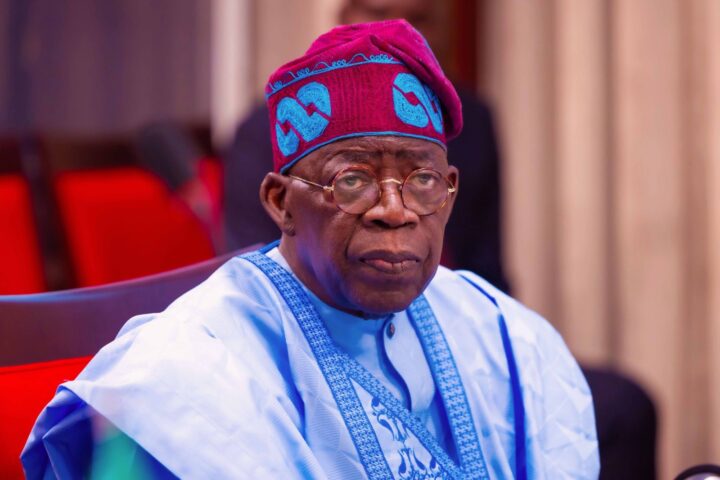BY ILEMONA ONOJA
Perhaps one of the funniest jokes anybody has put in public space in recent times is the claim by Mr. Garba Shehu, former presidential spokesman of former President Muhammadu Buhari in which he referred to his boss as someone who “came on a rescue mission and effectively saved Nigeria from corrupt undertones that were planted to expose its economy to moral collapse”.
Shehu wrote in response to the criticism of the Buhari administration contained in an interview by former Attorney-General and Minister of Justice under the Goodluck Jonathan administration, Mr. Bello Adoke (SAN). Though the Buhari spokesman was doing his job for which he was retained by the Buhari cabal after they left office, he should always stick to facts. He lied all through that press statement and I am sure he would not enjoy his sleep for days to come with the way his revisionist efforts had been rebuffed and rebutted with facts on the internet and other media spaces.
How dare Shehu write that “the success of the Buhari administration in the direction of the fight against corruption is unprecedented. New legislations were introduced… high profile convictions were recorded in unprecedented numbers, with enhanced percentages, over and above the records in existence”?
Advertisement
Which new anti-corruption laws did the Buhari administration originate in its eight years? In all of Buhari’s eight-year tenure, only between 2015 and 2019 did the National Assembly consider six anti-corruption bills. And just two of them were executive bills – the Mutual Assistance on Criminal Matters Bill of 2016 and the Whistle Blowers Protection Bill. Both were bills that were forced on the Buhari administration by the Financial Action Task Force (FATF), the global money laundering and terrorism financing watchdog, as well as other international bodies.
The legislators on their own passed three other anti-corruption bills which Buhari also almost frustrated. They included the Witness Protection Programme Bill 2015 which was aimed at protecting individuals and institutions that provide information, evidence, or assist law enforcement agencies in the course of an investigation, thereby encouraging the co-operation and support of witnesses to crimes.
Another one is the Nigerian Financial Intelligence Unit Act 2017 enacted in line with international standards and made to separate the agency from the Economic and Financial Crimes Commission (EFCC). This law helped to lift Nigeria’s suspension from the Egmont Group, and the subsequent official removal of Nigeria from the list of high-risk Third World countries by the Europe Group.
Advertisement
The 8th National Assembly also through a private member bill passed the Federal Auditor General Service Commission Bill which empowers the Office of the Auditor General of the Federation to ensure proper accountability in government spending. It should be noted that while the legislators were making institutional initiatives in the fight against corruption, the Buhari government was busy frustrating them to deny the legislators credit for their achievements. For example, Buhari ensured that he signed into law the Mutual Assistance in Criminal Matters Bill 2016, 13 days after the 8th National Assembly that passed it had been constitutionally dissolved in June 2019. So much for the claim that “new legislations were introduced”.
To further show that the Buhari government performed poorly in the area of initiating new laws to fight corruption, one could point to how two key laws became victims of the riotous, uncoordinated, and directionless government that Buhari headed where every officeholder was a law unto himself or herself. The Money Laundering Preventive Act (Amendment) Bill which the government wanted to sponsor before the 8th National Assembly was withdrawn because the AGF/Minister of Justice, Abubakar Malami (SAN), and the EFCC acting chairman, Ibrahim Magu were squabbling and quarreling over some of its provisions and there was nobody who could call them to order.
In the same vein, the Special Crimes Court Bill 2016 which was prepared by the Presidential Action Committee on Anti-Corruption (PACAC) then headed by the garrulous Prof Itse Sagay died a natural death when it was sent to Malami’s office for review. The bill did not make it to the National Assembly. So, how will Shehu justify the falsehood about Buhari initiating new laws to fight corruption?
In the same way, Garba Shehu’s ‘anti-corruption champion’ rejected the results of the probe by the 8th Senate which with obvious facts indicted the Buhari administration’s Secretary to the Government of the Federation, Babachir Lawal, on the allegations of using his companies to siphon funds meant for the salvaging of the insurgency-ravaged North East zone. While people were dying in the zone, millions of naira were allegedly being diverted through grass-cutting contracts and despite evidence of fund transfer and account details, Buhari still refused to sack the man and even wrote to the legislature defending him and dismissing the findings contained in the Senate report.
Advertisement
Not until the international community who Buhari unquestionably listened to because he wanted to continuously be in their good books mounted pressure on him did he relieve Lawal of his post. Till today, the administration has not been able to conclude the case filed against the ex-SGF. Yet, Garba Shehu wants Nigerians to believe “high-profile convictions were recorded in unprecedented numbers”.
In the same way, cases of corruption involving top administration officials or people close to Buhari were simply ignored. People who should know and have insight into the Buhari closet, inner circle generally talked of how many individuals who never worked anywhere in their lives or were so poor they could not afford airfare for local travels before Buhari became president suddenly are now stupendously rich because they were close to the General.
It is believed that the jury is still out on the Buhari administration and that when they return their verdict, the cases that will come out will be worse than what Nigerians witnessed under the Abacha regime. In any case, Buhari is indirectly a part of the Abacha regime which he happily served and which he defended up till now. Very soon, the Tinubu government will have no option other than to come out with gradual disclosures on the rot they inherited from Buhari. Anyway, top officials of the present administration have started spilling the beans.
Under Buhari, a national chairman of the ruling party declared that once a corrupt person or somebody who was being tried in court for corruption defected to the All Progressives Congress (APC), ‘his sin has been forgiven’. This was at a time when Buhari was desperate for re-election in 2018 and wanted federal legislators to defect from the opposition party to his party after many of those who supported him in 2015 had returned to their old party following complaints that the government was not being competently run. During this period too, many politicians with corruption cases became ardent supporters of Buhari so that their cases could be dropped or not diligently prosecuted.
Advertisement
One can successfully write a book on the ‘Many Cases of Monumental Corruption’ covered up or ignored under the Buhari administration. Contrary to the claim by Shehu, the failure of the Buhari administration in the direction of fighting corruption is unprecedented. These lapses have led to the prostate nature of the national economy.
Therefore, Garba Shehu should stop this revisionist mission he has embarked on. The public response to his last press statement should have convinced him that it was a failed mission that would achieve nothing. Nobody believed him. Buhari fought no corruption. Rather, his ‘I don’t care’ attitude enabled graft on a scale never witnessed in this country. It empowered corrupt officials to thrive. Buhari’s government made corruption to become an art of governance.
Advertisement
Onoja is based in Abuja.
Advertisement
Views expressed by contributors are strictly personal and not of TheCable.
Add a comment
